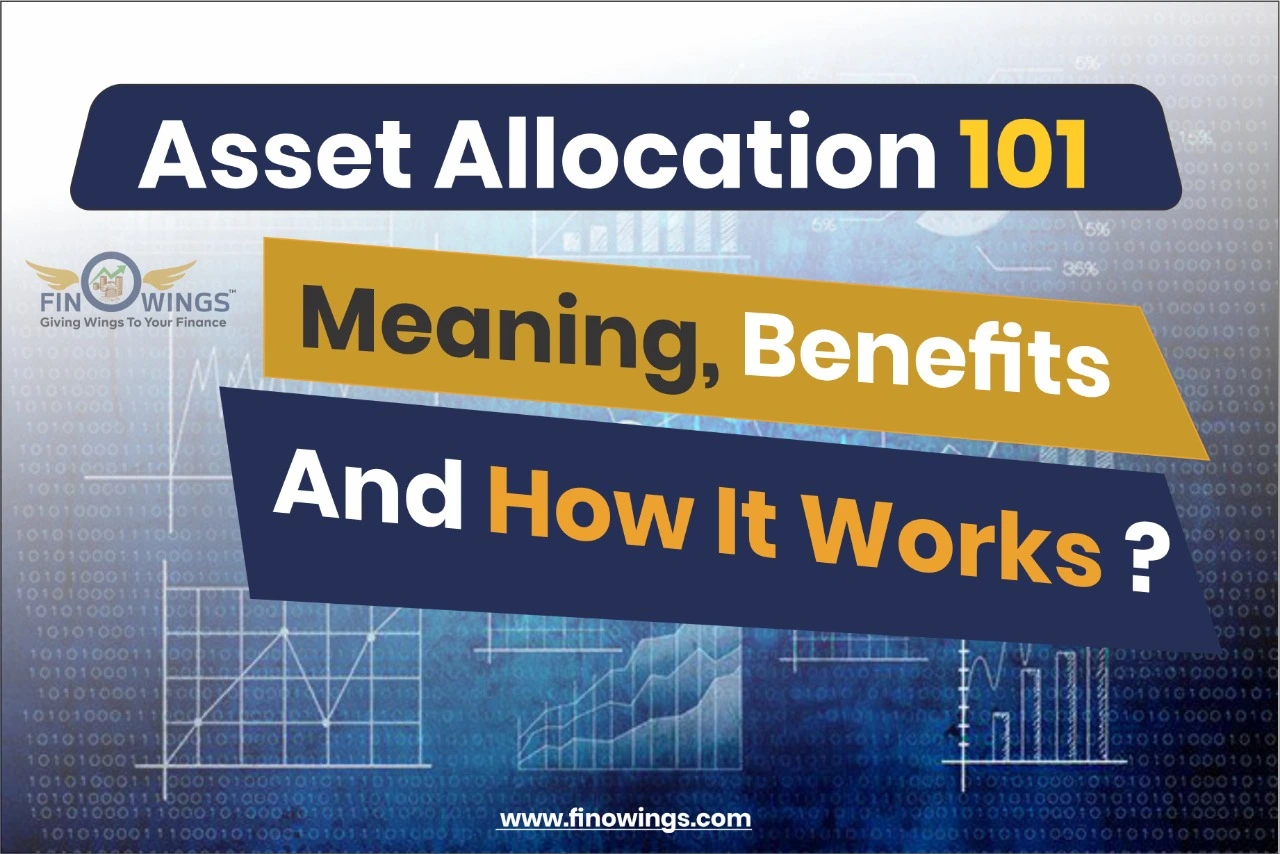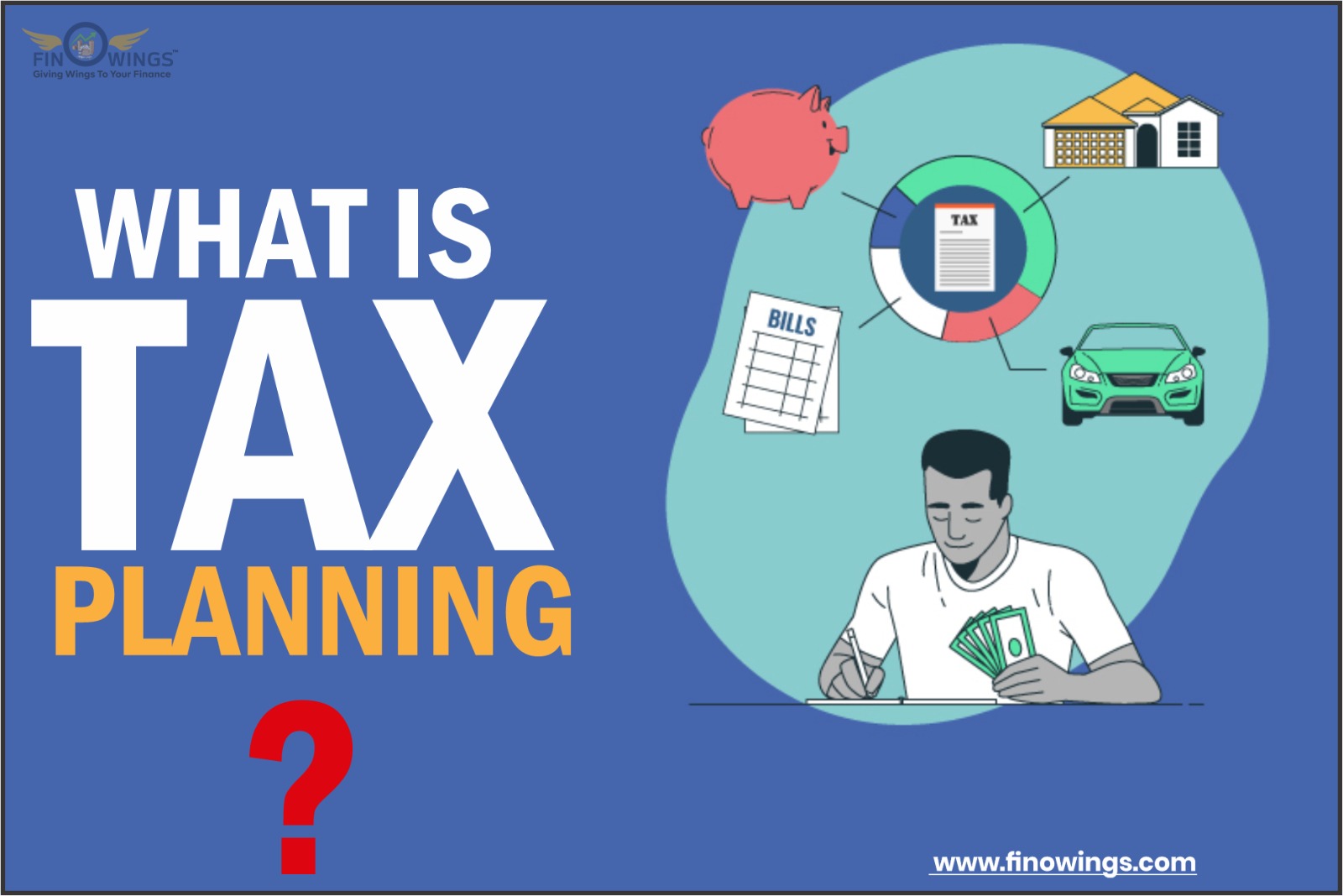Home >> Blog >> Asset Allocation 101: Meaning, Benefits, and How it Works?
Asset Allocation 101: Meaning, Benefits, and How it Works?

Table of Contents
Asset Allocation 101: Meaning, Benefits, and How it Works?
Tony Robbins once said,
The difference between success and failure is not which stock you buy or which piece of real estate you buy; it's asset allocation.
At different ages, we have different perspectives, different goals, and different incomes. And all these differentiators make it necessary for us to plan differently for our goals.
Every financial goal requires an efficient plan. And that planning starts with the perfect asset allocation.
But, one thing to remember is that no perfect asset allocation exists. All you can do to make things work for you is just go with that. But, before digging deep into what is perfect asset allocation, let's understand asset allocation.
1. What is Asset Allocation?
In the simplest language, asset allocation is where you decide to put your money, i.e., asset allocation is a strategy through which you decide to put your money to work. Asset allocation is nothing but how you invest in various investment avenues. This means how you allocate your money to various assets like gold, stocks, bonds, mutual funds, real estate, and many other financial instruments.
Asset allocation is done to make a good balance between the risk you can afford and the returns you can get, i.e., a good risk-reward ratio is maintained.
But, you may ask why asset allocation is important, so let us understand how good asset allocation can change the way your income statement looks.
2. Importance of Asset Allocation
There is no formula for perfect asset allocation for any individual. People invest in a pretty ad-hoc way in the absence of proper knowledge of asset allocation. And this is something we don't want our readers to do, and that is why it is important for you to understand the importance of asset allocation.
|
Optimum Liquidity |
Liquidity, moreover, is one of the most crucial aspects of asset allocation. Suppose you have invested in schemes like Equity Linked Savings Scheme (ELSS), Public Provident Fund (PPF), Sukanya Samridhi Yojana (SSY), or some other scheme with a lock-in period only, but now you need some money urgently may be due to some emergency, now either you will have to pay penalties to get your money back, or if you have done proper asset allocation then you will not get worried, and you will be sorted, because you will have liquid assets in your portfolio. |
|
Reduced Tax Liability |
Different asset classes are taxed differently, and investing in a no. of them will definitely save your taxes, as many asset classes come with certain tax benefits. |
|
Minimize Risks |
Imagine someone who invests only in the stock market, there is no other asset class where he/she has invested, and then the probability of risks increases exponentially. Whereas if some other person, along with the stock market, has made some investment in other asset classes also, then even if there is a dip in the market, he/she will be in a better place than the person in the first situation.
And this is how asset allocation reduces risks. |
|
Reasonable Returns |
Proper asset allocation minimizes risk and volatility and maximizes returns. A lot of investors sometimes may turn too aggressive or too conservative, but if you optimally allocate your assets, then the risk reduces, and the return increases. |
And, now you must have understood what asset allocation is and its importance, so it is the right time to understand how asset allocation is done.
3. The Asset Allocation Process
|
Set Financial Goals |
Financial planning is always done after determining your goals, and your goals are decided by what kind of lifestyle you want in the future; and for those who are on the verge of getting retired or are planning about retirement should always consider life expectancy, i.e., the approximate age they believe till which they will survive. In India, life expectancy is around 70 years. So, if you consider this age, and retire at 60, then you should allocate your money in a way that your assets can live up to at least ten years. |
|
Align Your Asset Allocation To Your Age |
Whether you should be a conservative investor or an aggressive investor depends on your age. People reaching the age of retirement are supposed to be conservative because, at that age, the risk-taking ability is the least; however, a 30-year-old can afford to invest aggressively because of higher risk-taking abilities.
*The % of equities in your portfolio should equal 100 minus your age, you can use as a thumb rule. For example, if you are 30, then 70 percent of your portfolio should be made up of stocks. |
|
Diversify Your Portfolio |
Being obsessed with only one asset class and investing in only that is a sin. A lot of our elders only believe in fixed deposits, and also at the same time, a lot of people only believe and invest in stock markets. Diversification is the most important thing. Always invest in various asset classes to minimize your risk, and maximize the returns. |
|
Don't Let The Market Dictate You |
The most common mistake among the majority of investors is that they let the market dictate their asset allocation. A wise investor will never get affected by market corrections, and if you are getting affected by the same, then you are committing a huge mistake.
Sometimes, investors tend to stop continuing their SIPs during a downward phase of the market, but let's see what you will be missing if you stop your SIPs. |
As someone rightly said,
"A few holdings with radically different types of market behavior will do more to smooth out the pattern of portfolio returns than 50 or 100 holdings that move up and down together."
But, always remember that over-diversification can also be harmful. Rather than minimizing your risks, over-diversification will make your returns go flat.
And a very wise piece of advice by Peter Bernstein says,
"What's comfortable is not the right way to invest. You must own things that you're uncomfortable with. Otherwise, you're not really diversified."
Always remember these rules by the masters to be extraordinary.
Now, Let's see two different investment strategies to earn returns.
4. Passive vs. Active Management
Passive and Active Management are the two strategies for managing investment portfolios.
Let's understand these strategies using the example of mutual funds.
4.1: Active Portfolio Management: In the case of equity mutual funds, there is a dedicated fund manager who actively manages the funds and makes changes in the portfolio in accordance with the market trends, i.e., how the larger economy and markets are performing.
Advantages of Active Portfolio Management
· Great Flexibility in Volatile Markets
· Quick and High Returns
Disadvantages of Active Portfolio Management
· High-Risk
· High-Cost
4.2: Passive Portfolio Management: In the case of index funds, the fund managers passively manage the portfolio by duplicating the performance of major market indexes.
Advantages of Passive Portfolio Management
· Lower Risk
· Lower Cost
· High returns over a lengthy time horizon
Disadvantages of Passive Portfolio Management
· No Quick Returns
· No Way Out when there is a Bear Market.
So, both of the strategies have their own advantages and disadvantages, and you have to see what works for you, depending on your risk appetite.
5. Conclusion
No matter what age you are, you need to be financially literate; no matter what you study or do, you should always learn finance.
Finance is something without the knowledge which we cannot live a luxurious and comfortable life. Yes, money is not everything, but if you have it, then you should know how to manage it so that it can help you achieve whatever goals you have.
And this is what we have tried to make you learn through this read. Start planning as soon as possible to achieve whatever you want, because what you have can do absolute wonders, but only if it is managed well.
For retirement planning specifically, an efficient asset allocation is of utmost importance. Because at a time when you have no income source, what you had planned earlier or invested earlier will only come to your rescue.
So, to have it all,
Frequently Asked Questions
The three major factors that impact asset allocation are investment horizon, personal goals, and risk appetite.
Stocks are the riskiest form of investment, but also has the potential to give better than expected returns.

















